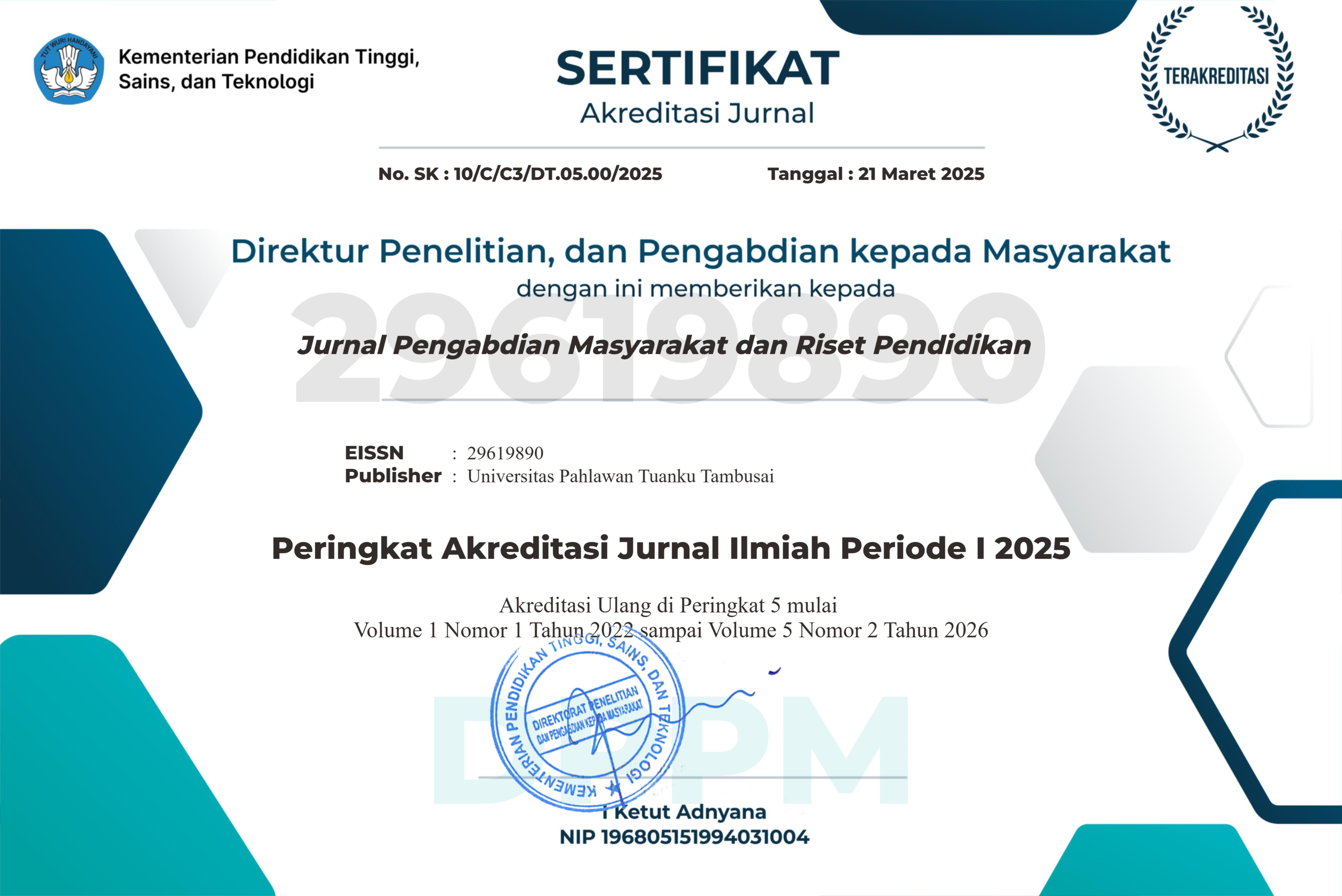Artificial Intelligence (AI) dalam Pembelajaran Matematika: Kajian Bibliometrik
Penelitian
DOI:
https://doi.org/10.31004/jerkin.v3i4.1044Keywords:
Artificial Intelligence, Mathematics Education, BibliometricsAbstract
The application of Artificial Intelligence (AI) in mathematics education offers great potential to enhance the quality of education by creating more personalized and adaptive learning experiences. This article explores the role of AI in mathematics education through a bibliometric analysis of related literature, aiming to identify research trends, key topics, and emerging international collaborations. Based on analyses using methods such as treeMap, co-occurrence network, thematic map, factorial analysis, collaboration network, and word cloud, this study highlights the dominance of AI and mathematical modeling topics, as well as the close relationship between technology, education, and computer science. While AI offers numerous opportunities to improve students' understanding of complex mathematical concepts, challenges related to technology access and educators' expertise still need to be addressed. This study also emphasizes the importance of international collaboration in accelerating the adoption and innovation of AI technology in mathematics education. The findings are expected to provide a foundation for further research on the application of AI in education, focusing on the development of more advanced and inclusive adaptive learning systems
References
Baker, R. S., & Inventado, P. S. (2014). Educational data mining and learning analytics. In Learning Analytics (pp. 61-75). Springer.
Baker, R. S., & Siemens, G. (2014). Educational data mining and learning analytics. In Learning Analytics (pp. 61-75). Springer.
D’Mello, S. K., & Graesser, A. (2015). Feeling, thinking, and computing with affect-aware learning technologies. In The Cambridge Handbook of the Learning Sciences (2nd ed., pp. 419-438). Cambridge University Press.
Dwork, C., & Roth, A. (2014). The algorithmic foundations of differential privacy. Foundations and Trends® in Theoretical Computer Science, 9(3–4), 211-407.
Luckin, R., Holmes, W., Griffiths, M., & Forcier, L. B. (2016). Intelligence Unleashed: An Argument for AI in Education. Pearson.
Mohamed, A., Aljohani, N. R., & Alghamdi, A. S. (2022). Bibliometric analysis of AI in education research: A global perspective. Journal of Educational Computing Research, 60(3), 567-589.
Nye, B. D., Graesser, A., & Hu, X. (2014). Autotutor and family: A review of 17 years of natural language tutoring. International Journal of Artificial Intelligence in Education, 24(4), 427-469.
Panqueban, R. (2024). Systematic literature review on AI applications in mathematics education: Gaps and future directions. International Journal of Educational Technology in Higher Education, 21(1), 45.
Papastergiou, M. (2009). Digital game-based learning in high school computer science education: Impact on educational effectiveness and student motivation. Computers & Education, 52(1), 1-12.
Russell, S., & Norvig, P. (2016). Artificial Intelligence: A Modern Approach (3rd ed.). Pearson.
Selwyn, N. (2019). Should robots replace teachers? AI and the future of education. Polity Press.
VanLehn, K. (2011). The relative effectiveness of human tutoring, intelligent tutoring systems, and other tutoring systems. Educational Psychologist, 46(4), 197-221.
Williamson, B., & Piattoeva, N. (2020). Objectivity as standardization in data-scientific educational governance: Grasping the global through the local. Research in Education, 101(1), 69-91.
Woolf, B. P. (2010). Building Intelligent Interactive Tutors: Student-centered Strategies for Revolutionizing E-learning. Morgan Kaufmann.
Wouters, P., van Nimwegen, C., van Oostendorp, H., & van der Spek, E. D. (2013). A meta-analysis of the cognitive and motivational effects of serious games. Journal of Educational Psychology, 105(2), 249-265.
Zhang, Y., & Aslan, S. (2021). Systematic review of AI applications in education: Trends and challenges. Computers & Education, 168, 104211.
Downloads
Published
How to Cite
Issue
Section
License
Copyright (c) 2025 Rusdial Marta, Fadhilaturrahmi, Zulfah

This work is licensed under a Creative Commons Attribution-ShareAlike 4.0 International License.















